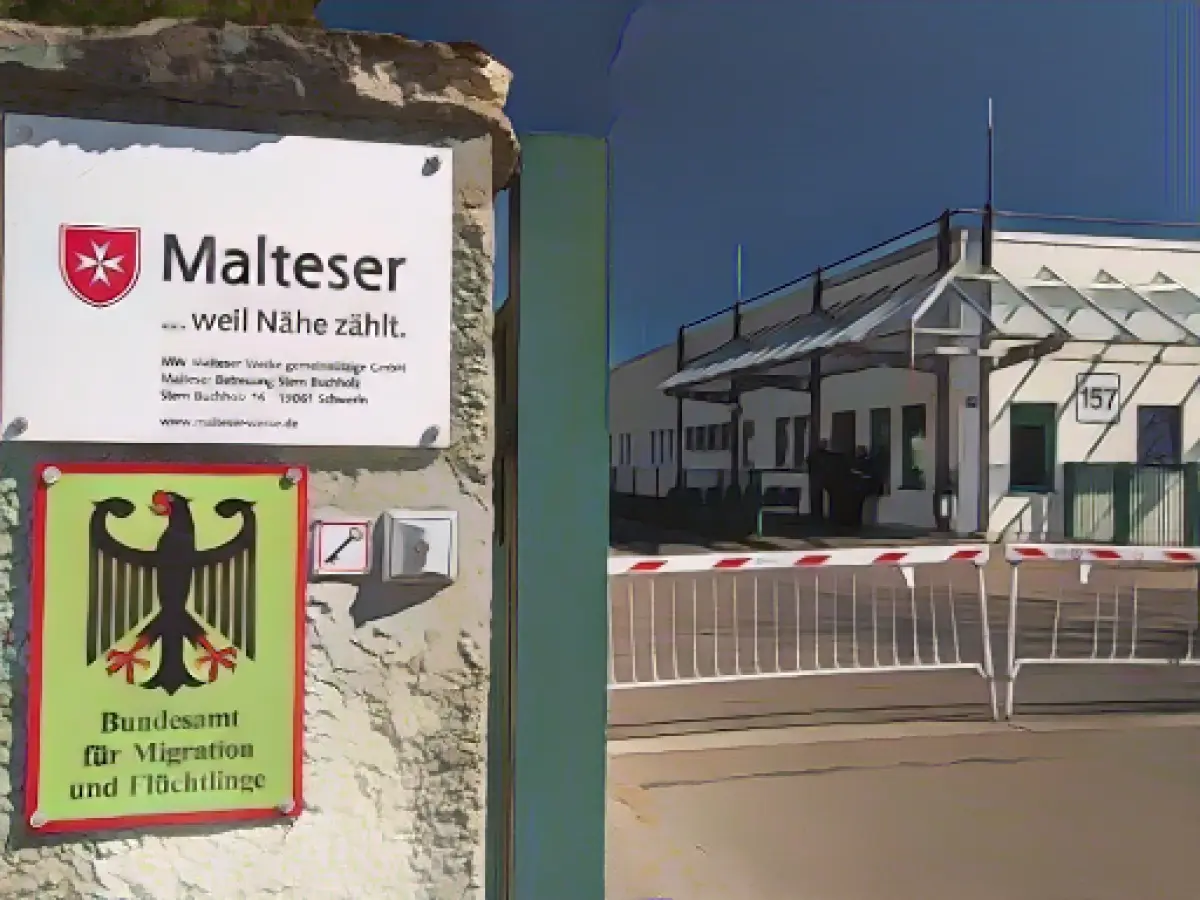More asylum seekers in MV than in the previous year: additional places
Mecklenburg-Vorpommern is increasing the reception capacity in the state's initial reception facilities in view of the continuing high number of asylum seekers. Interior Minister Christian Pegel (SPD) announced that containers are to be set up on the former border troop site in Nostorf-Horst (Ludwigslust-Parchim district). Refugees have been housed in the barracks buildings there immediately after their arrival since 1995. In Stern-Buchholz near Schwerin, where a former barracks also serves as refugee accommodation, three further, previously unused blocks of flats are to be renovated by the landlord.
The situation is tense, explained Pegel. There are currently 1710 regular places available in both facilities. At the beginning of November, however, 1772 people were housed there, including in emergency accommodation in a sports hall. "We have increased the density of accommodation due to the high number of new arrivals," said Pegel. In addition, a facility in Parchim is being used for asylum seekers who are about to be transferred to municipal accommodation.
Local authorities and districts had already asked the state to increase initial reception capacities in the summer in order to gain more time to prepare the necessary apartments and collective accommodation. Sometimes sports halls have to be converted into emergency accommodation again, such as in Rostock. However, there is increasing criticism of this.
In the first ten months of 2023, Mecklenburg-Vorpommern took in almost 5,200 asylum seekers, which is already more than in the entire previous year. This is according to the federal government's response to a question from AfD member of parliament Leif-Erik Holm. The Federal Office for Migration and Refugees stated that the number of asylum applications submitted in MV so far this year is 4839. In addition, around 5,000 war refugees from Ukraine have been granted temporary protection without applying for asylum. According to the Ministry of the Interior, a total of 24,500 Ukrainians are currently living in MV.
According to the data from the Federal Office for Migration, the number of first-time asylum applications registered nationwide at the end of October was around 267,000, which was also higher than the previous year's figure. The previous highest number for a year was registered in 2016 with around 720,000 asylum seekers in Germany.
According to Holm, the high number of asylum seekers is putting increasing pressure on the local authorities taking in asylum seekers. Almost a year ago, accommodation capacities were already exhausted in many places. "It is simply no longer manageable," said Holm. He called on the federal government to take consistent action. "That means: permanent stationary border controls, rejections at the border and a consistent fight against people smuggling," said the AfD politician from Schwerin.
Holm expressed doubt that the measures agreed by the federal and state governments at the most recent migration summit would be sufficient to bring about the "real turning point" in migration that he believes is needed. "Illegal immigrants and social migrants must be clear: The path to Germany is no longer worth it," said Holm.
On Friday, Minister President Manuela Schwesig stated in the state parliament that the reception of refugees in the municipalities was reaching its limits. Not everyone who makes their way to Germany is allowed to come, said the SPD politician. Although the latest resolutions by the federal and state governments have not solved all the problems, important changes have been introduced.
The increased number of asylum seekers in Mecklenburg-Vorpommern has led to a strain on local authorities, as evidenced by the 1772 people currently housed in the state's initial reception facilities, exceeding the available 1710 regular places. In response, the government is expanding the reception capacities, setting up containers in Nostorf-Horst and renovating unused flats in Stern-Buchholz.
In light of the escalating situation, political parties like the AfD are advocating for stricter border measures, including permanent border controls, rejections at the border, and a consistent fight against people smuggling, aiming to deter further migration.
Source: www.dpa.com








